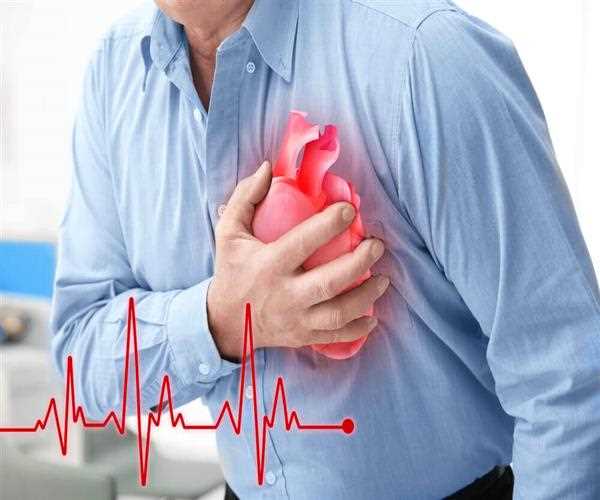A heart attack, medically known as (myocardial fibrillation), is a life-threatening medical emergency that occurs when the heart muscle is deprived of oxygen-rich blood due to a blockage in one or more of the coronary arteries. This blockage can be caused by a buildup of fatty deposits (atherosclerosis) in the arteries, a blood clot, or a spasm of the artery.
When a heart attack happens, the heart is unable to pump enough blood to meet the body’s needs, causing a decrease in oxygen supply to the heart muscle, which in turn leads to tissue damage and the death of the heart muscle. This can cause permanent damage to the heart and can be fatal.

The symptoms of a heart attack can vary greatly, depending on the severity of the damage to the heart muscle. Common symptoms include chest pain or discomfort, shortness of breath, nausea, and sweating. In some cases, a heart attack can occur without any noticeable symptoms, making it difficult to recognize.
The most common cause of a heart attack is coronary artery disease, which is caused by a buildup of plaque in the arteries that narrows them and restricts blood flow. Other risk factors for a heart attack include high cholesterol, high blood pressure, obesity, smoking, diabetes, and a family history of heart disease.
It is important to recognize the signs and symptoms of a heart attack and seek immediate medical attention if any of them are present. Early detection and treatment are key to reducing the risk of a heart attack and its associated complications. Treatment options for a heart attack include medications to reduce the risk of clot formation and restore blood flow, angioplasty to remove blockages in the coronary arteries, and surgery to repair damage to the heart muscle.
Living a healthy lifestyle can help reduce the risk of a heart attack. Eating a balanced diet, exercising regularly, and avoiding smoking are all important steps to reduce the risk of a heart attack. Additionally, it is important to manage any existing risk factors, such as high cholesterol or high blood pressure, to reduce the risk of a heart attack.